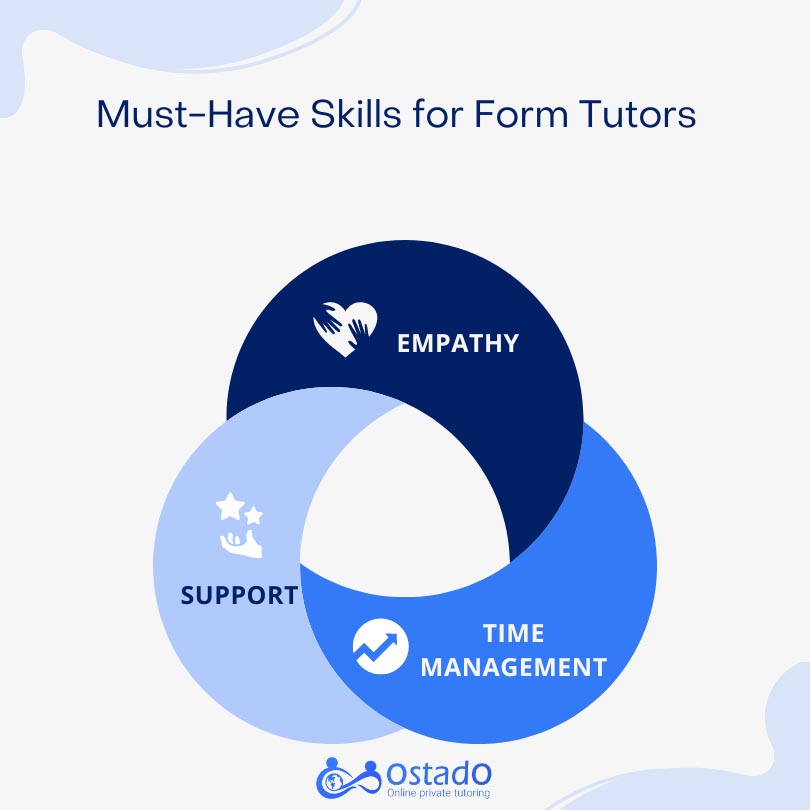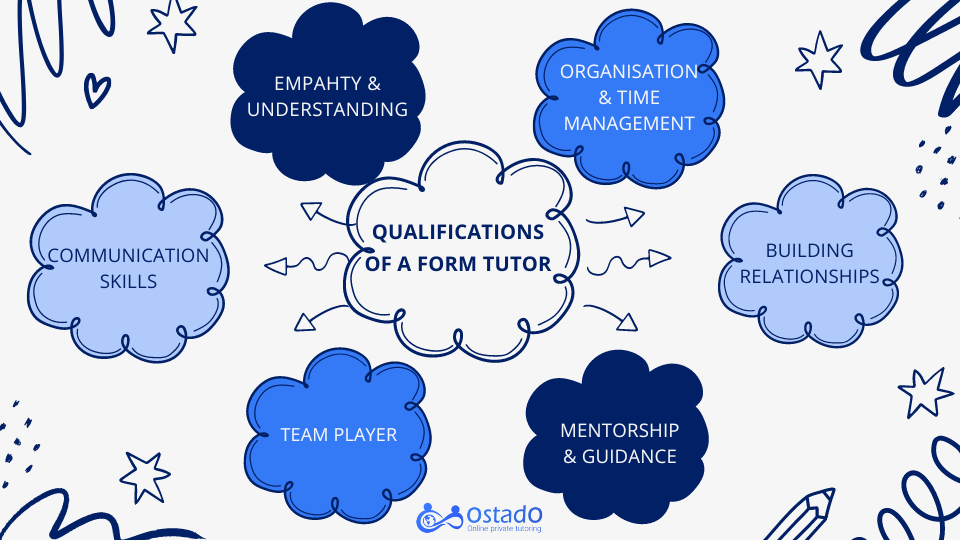Most early career teachers don’t like the form tutoring role. The Early Career Framework ECF is about helping you expand your skills as a professional teacher. Being a good form tutor is a straightforward path to professional growth.
What makes a good form tutor? It’s more than just taking attendance or overseeing morning assemblies. Empathy, time management and communication skills are important.
Must-Have Qualities to Become a Good Form Tutor
According to Early career framework form tutors need certain qualities, including:
- Strong interpersonal skills, classroom management skills and knowledge.
- Excel at administrative tasks.
- Help student development.
Let’s take a more comprehensive look:
-
Empathy and Understanding
Empathy and understanding are the essence of an effective relationship. A form tutor must be able to connect with students on a personal level; students should feel comfortable opening up to a form tutor about their problems, concerns, etc. Awareness of the students’ emotions and needs and why they struggle helps tutors stay ahead and provide the support needed during the academic year.
-
Strong Communication Skills
Besides supporting students and parents, form tutors help run a positive school environment by helping other teachers. Form tutors develop an understanding of the students, their struggles, needs, and styles.
Form tutors help teachers build plans and provide student learning resources. An effective form tutor should be able to communicate effectively with colleagues, parents, and students. Besides confidence and respect, active listening skills are essential for effective communication.
-
Organisational and Time Management Skills
Monitoring students’ progress and attendance is one of the core duties of form tutors, as it is essential for providing the support and guidance each student might need.
As part of a form tutor’s job, you must conduct form activities such as workshops, reviews, celebrations, etc.
Besides the students, you should also review the progress tracking with parents/carers and teachers. Suppose there are no school policies regarding administrative tasks. In that case, creating a system that will work best for you and the form group during the school year or key stage is best.
You can use multiple strategies and tools to track student progress depending on your preference and working style. Planners, coloured notes, and apps like My Attendance Tracker can greatly help.
Read More: What Qualifications Do I Need to Become a Tutor in The UK?

How to Build Good Relationships with Students
Building a positive relationship with students leads to trust and further success for both form tutors and students. By paying attention to students’ needs and challenges and celebrating achievements, you can build trust and a positive relationship. Below are the benefits of building rapport:
What makes a good form tutor? The ability to Encourage participation and value each student’s input to build an inclusive environment where every student feels seen and valued.
One of the most important qualities of a good form tutor is creating a welcoming and inclusive space. By getting to know each student’s interests, strengths, and challenges, form tutors foster a sense of belonging.
Good Mentorship and Guidance
Since form tutors interact with students, they can make education progress and the path to academic achievements straightforward. Form tutors can also provide subject teachers with data for effective lesson planning.
However, besides the lessons and curriculum, students can benefit from learning life skills; social-emotional learning (SEL) is an excellent example. By providing mentorship and guidance, form tutors help students develop resilience and problem-solving skills. Here are our top tips for mentoring students through social-emotional learning:
- Build a positive school culture.
- Help students build time management skills by guiding them through setting achievable goals.
- Provide the setting for complementing their peer students
- Help them promote empathy by group talking about hypothetical scenarios
- Consider playing games like ‘Would you rather’ or hypothetical ethical dilemmas to facilitate decision-making
Student Engagement and Motivation Strategies
Providing support for academic and personal issues is essential for a form tutor’s job, which is only possible through effective communication.
When students receive the support they need in a positive environment, the tutor’s job becomes much more rewarding. One of the most important things a form tutor can do for students is motivate them through the school year, key stage, and further education. Here’s how form tutors can help:
-
Creating Interesting Lesson Plans
Think outside the box, include activities that foster teamwork and encourage open communication.
While teachers often handle lesson planning, form tutors can support by tailoring form-time activities to meet the unique needs of their students. Interactive activities, hands-on projects, and group discussions make learning fun and help students build life skills.
-
Encouraging Student Autonomy
Promote a classroom culture where students feel safe to take risks, ask questions, and learn from mistakes.
Encouraging autonomy allows students to take ownership of their learning. Whether it’s through independent projects or guided discussions, creating a space for independence helps students grow into confident learners.
3. Communication with Parents/Guardians
In most schools, a form tutor is the first point of contact due to the daily interactions and close relationship with students; they play a great role in connecting schools to parents.
An effective form tutor regularly contacts parents/guardians about student progress. Effective communication with parents requires you to talk respectfully and confidently while sharing positive updates and addressing concerns.
Depending on school policy or your preference, the method of communication can be over the phone, email, or meetings. Nevertheless, scheduling these meetings and conferences is vital.
4. Working Collaboratively with Colleagues
Teamwork makes a form tutor even more effective. By sharing insights and resources with other teachers or reporting student progress, you can provide a consistent support network for students.
Form tutors play an important role in overall education by working closely with subject teachers, special education staff, and even administrators to ensure each student’s success.
To find out more about form tutoring, watch this YouTube video by Teacher’s TV about a day in the life of a form tutor.
5. Coordination with Other Staff Members
A good form tutor collaborates with various staff members to support students effectively. Sharing insights about a student’s goals, challenges, and preferences with subject teachers enables a coordinated approach.
You might even invite special education teachers to form time sessions for group activities or discussions, enhancing the support each student receives.

Building Your Career as a Form Tutor at Ostado
Suppose you are passionate about teaching and helping students achieve their academic goals. In that case, our online tutoring website offers valuable career opportunities for you.
At our interactive and secure tutoring platform, your teacher profile will be seen by many students, and you can schedule all your lessons at your convenience. Join Ostado today!
What is the point of form time in secondary school?
During the form time, students can connect with their form tutor to obtain reminders and announcements, discuss concerns, discuss SEL activities, etc. The overall purpose of the form system is to ensure students' well-being and skills development.
What is the role of a form tutor for attendance?
Reporting unexcused absences, keeping records, talking to parents about absences, and daily registrations are among the duties of a form tutor regarding attendance.

